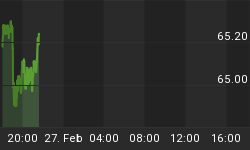Tesla and Apple both suspect that their self-driving car technology has been stolen by engineers who went over to a Chinese competitor. That’s a very time-sensitive claim, with intellectual property theft being a central issue in President Donald Trump’s intense trade war against China.
The electric carmaker filed a lawsuit against XMotors.ai, the U.S. research arm of China-based Xpeng, and included a subpoena for Apple to cooperate in the suit. Tesla accused an engineer who worked on its Autopilot system of stealing thousands of highly confidential files when he left the company for a new job at XMotors.ai.
Last year, prosecutors charged a hardware engineer with downloading Apple’s proprietary files as he left the company to go over to the Chinese competitor. He’d been part of the Silicon Valley-giant’s autonomous, electric car secretive development project. The engineer has pleaded not guilty to these charges.
The former Tesla engineer, Guangzhi Cao, responded in a court filing that he downloaded copies of Tesla’s Autopilot-related source code to his personal iCloud account, but denies any illegal maneuvers. According to his lawyers, Cao “has done precisely nothing with Tesla’s IP,” having “diligently and earnestly” tried to remove all of Tesla’s proprietary source code from his personal devices — and he offered to turn over his devices for inspection.
XMotors.ai’s parent company, Xpeng, has yet to be included in the investigations, but the company did respond to the allegations. Xpeng, which is backed by China’s Alibaba Group Holding Ltd. and Taiwan’s Foxconn Technology Group, has denied having any part in the former Tesla engineer’s alleged intellectual property theft. The Chinese company said it had been notified in June 2018 that U.S. authorities were investigating the Apple engineer, his computer, and office equipment.
Xpeng is one of the startups that’s pushing for China to lead the world in autonomous and electric vehicles (EVs) — and has been tapping into China’s “new-energy vehicle” campaign for global domination as the auto industry continues to transform.
There’s also the sore subject of oil imports to China, with the national government wanting to cut back on this dependence through alternative fuels, EVs, buses, and self-driving vehicles. Related: Another Round Of Bankruptcies Looms For U.S. Oil Industry
The Trump administration has made intellectual property theft and spying a benchmark of its trade war. While Trump could care less about electric vehicles and transfers the issue of autonomous vehicles over to his Transportation Secretary Elaine Chao, the president does see another economic battle to be much more important.
The cutting-edge 5G technology coming out in smartphones tells that story well, with Trump's ban of Chinese company Huawei being a hot spot lately. Huawei will be one of the dominant suppliers as 5G enters the global market.
5G, powering the next generation of wireless smartphones and tablets, is expected to ramp up wireless data transfer by leaps and bounds. Users will be able to download movies and TV series in just a few minutes. It will also become the foundation of wireless’ next generation of infrastructure that will guide the development of smart cities and autonomous vehicles.
National security experts say that Huawei’s close ties to the Chinese government could lead to espionage or a traumatic episode such as shutting down critical communication networks during a future conflict.
For Tesla, Apple, and many other companies, playing a leading role in autonomous vehicles is a high priority. Tesla has had a number of fatal car crashes tied to its Autopilot semi-autonomous system, but has been working hard at perfecting its fully autonomous system being build into new Tesla vehicles. Related: Saudi Stocks Plummet As Foreign Investors Bail
Tesla wants to make sure its bases are covered as CEO Elon Musk just released another teaser about the next phase of the electric carmaker's self-driving car system being announced soon. Musk said that the company could be offering its new Fully Self Driving chip, as an upgrade to more than 500,000 older-model Tesla vehicles, by the end of this year.
“End of Q4, most likely,” Musk said in reply to a question on when the company would be retrofitting its autonomous vehicle system that Tesla started adding nearly three years ago to new vehicles coming out of its factory. That system includes what it calls Hardware 2 (HW2), a set of sensors, radars, and cameras. Musk has made his share off comments since the initial launch about Tesla leading the way in fully autonomous vehicles.
By Jon LeSage
More Top Reads From Safehaven.com:

















